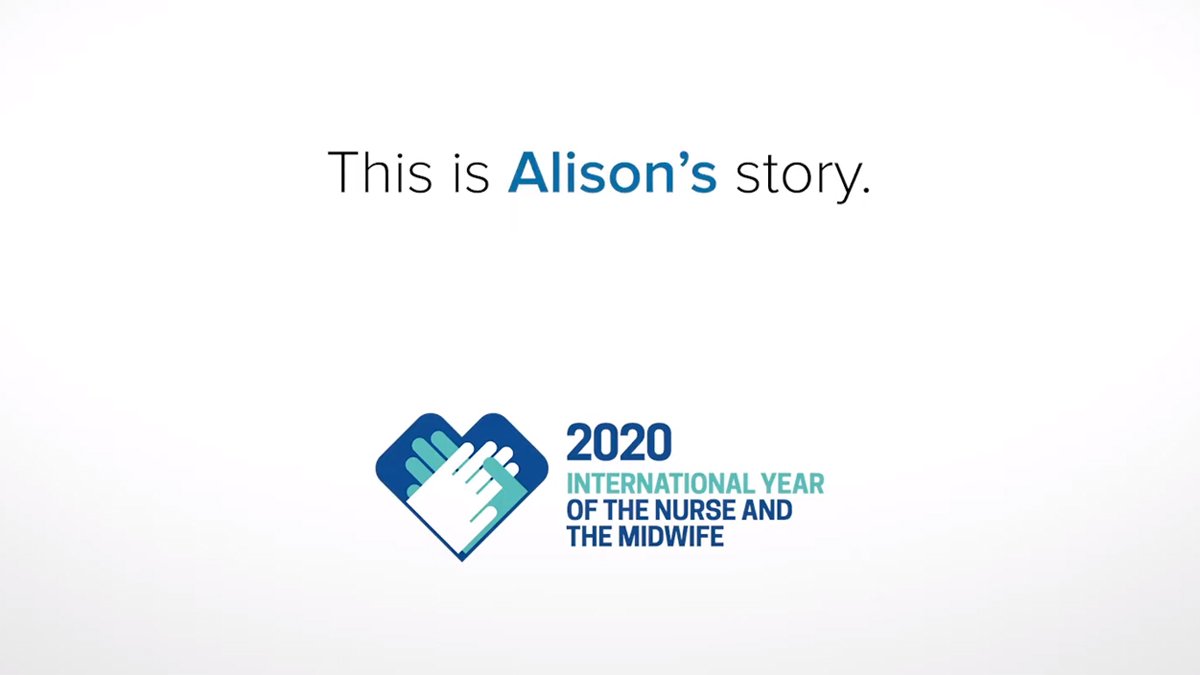
Dr Alison Callwood
Academic and research departments
School of Health Sciences, Faculty of Health and Medical Sciences.About
Biography
Alison completed a BSc (Hons) degree in Nursing Studies at the University of Surrey in 1990 followed by a Diploma in Health Education/RM from Cambridge College of Health Studies in 1995.
She worked as a midwife before travelling to Malawi with Voluntary Service Overseas as a Midwifery Tutor in 1996. On returning in 1998 Alison completed an MSc in Mother and Child Health at the University of London. She then commenced work at the Royal College of Obstetricians and Gynaecologists as a Research Fellow tasked with setting up and coordinating the National Sentinel Caesarean Section Audit. Alison joined the University of Surrey in 2001. Since then she has taken three mini career breaks to have children; she completed her PhD in 2015 and is now actively engaged in post-doctoral research. Alison is a member of the Medical Schools Council Selection Alliance, MMI Expert Group, INResH (International Network for Researchers in Selection into Health) and co-founder of the National MMI Interest group for Nursing, Midwifery and Allied Health professionals. Alison was awarded Senior Fellowship of the Higher Education Academy in 2018.
Alison co-founded Sammi-Select in 2020 as a spinout from the University of Surrey. Sammi-Select brings integrity in a data-driven, co-design approach to candidate selection. The asynchronous interview and assessment software is uniquely informed by users needs to enhance diversity hiring. Social science is combined with ethically deployed technology for fair, more objective and cost-efficient people-selection. The company has been awarded multiple grants from UKRI (2018-2022), Seed Funding and were finalists in the Guildford Innovation Awards 2020 for 'Young Business of the Year' and 'Emerging Technologies'. Most recently, Alison was awarded Innovate UK 2023 Women in Innovation award for the GENIUS project, generating neuro inclusive selection. Also in 2023 Alison was awarded Fellowship of the Royal College of Midwives.
University roles and responsibilities
- Practice Liaison Link Tutor at St Richards Hospital, Chichester
I became a midwife to make a difference to the lives of vulnerable women and children, after volunteering in a home set up by Mother Theresa.
News
ResearchResearch interests
Alison's PhD focused on student selection strategies in pre-registration student midwife recruitment specifically the development and piloting of multiple mini interviews (MMIs). This was supported by the Iolanthe Midwifery Trust and was awarded The Rosemary Pope Memorial Award for 'outstanding contribution to nursing and midwifery education' in 2015.
Her post-doctoral research continues in education specifically innovation in relation to MMIs as well as immersive teaching and learning strategies. Alison has been awarded a number of Faculty grants/pump-priming to fund her research including: a longitudinal follow study exploring the reliability and predictive validity of MMIs from a cross-professional perspective, developing and piloting audio-drama MMIs, exploring the 'values journey' of healthcare students selected using MMIs in values based recruitment context and most recently automated transformations in MMIs and teaching and learning (Impact Acceleration Funding).
Alison is a member of the University of Surrey Ethics Committee; she was awarded Faculty of Health and Medical Sciences Innovator of the Year in 2018.
Other interests include mixed methods research and women's health in developing countries.
The use of multiple-mini interviews (MMIs).
Research interests
Alison's PhD focused on student selection strategies in pre-registration student midwife recruitment specifically the development and piloting of multiple mini interviews (MMIs). This was supported by the Iolanthe Midwifery Trust and was awarded The Rosemary Pope Memorial Award for 'outstanding contribution to nursing and midwifery education' in 2015.
Her post-doctoral research continues in education specifically innovation in relation to MMIs as well as immersive teaching and learning strategies. Alison has been awarded a number of Faculty grants/pump-priming to fund her research including: a longitudinal follow study exploring the reliability and predictive validity of MMIs from a cross-professional perspective, developing and piloting audio-drama MMIs, exploring the 'values journey' of healthcare students selected using MMIs in values based recruitment context and most recently automated transformations in MMIs and teaching and learning (Impact Acceleration Funding).
Alison is a member of the University of Surrey Ethics Committee; she was awarded Faculty of Health and Medical Sciences Innovator of the Year in 2018.
Other interests include mixed methods research and women's health in developing countries.
The use of multiple-mini interviews (MMIs).
Teaching
I teach on the BSc (Hons) Midwifery (Registered Midwife) course.
Publications
Digital health technology (DHT) holds the potential to improve health services, and its adoption has proliferated in recent decades owing to technological advancement. Optimal evaluation methodologies appropriate for generating quality evidence on DHT have yet to be established; traditional comparative designs present several limitations. This study aimed to scope the literature to highlight common methodological approaches used and their limitations to inform considerations for designing robust DHT evaluation studies. A scoping review was conducted following the Joanna Briggs Institute (JBI) scoping review guidelines. A systematic search was conducted using the CINAHL (EBSCO), MEDLINE (EBSCOhost), PsycINFO (EBSCO), EMBASE (Elsevier) and Web of Science (Clarivate Analytics) databases using iteratively developed search terms. We selected studies published in English between January 2016 and March 2022 and focussed on primary research evaluating the effectiveness of DHT with technology-user interactive or asynchronous features for adults (>= 18 years) with cancer, diabetes or cardiovascular conditions. The final number of articles, after the screening and selection process, comprised 140 records. Data were analysed descriptively (frequency and percentages) and summarised thematically. Results showed most studies (n = 104, 74.3%) employed the standard two-arm parallel RCT design, with usual/standard care as the preferred comparator in nearly half (n = 65, 47.1%) of all included studies. Of the 104 comparative studies reviewed, limitations in recruitment were most frequently reported (n = 70, 37%), followed by limitations in evaluation/measurement techniques (n = 57, 27%), presence of confounding factors (n = 50, 24%) and short duration of studies (n = 24, 11%). The review highlights the need to consider inclusive approaches to recruitment and adoption of the emerging methodological approaches that account for the fast-paced, multi-component and group contamination problem resulting from the unconcealable nature of DHT interventions.
Objectives: Global, Covid-driven restrictions around face-to-face interviews for healthcare student selection have forced admissions staff to rapidly adopt adapted online systems before supporting evidence is available. We have developed, what we believe is, the first automated interview grounded in Multiple Mini-Interview (MMI) methodology. This study aimed to explore test re-test reliability, acceptability, and usability of the system. Design, setting and participants: Multi-method feasibility study in Physician Associate (PA) programmes from two UK and one US university during 2019 - 2020. Primary, secondary outcomes: Feasibility measures (test-retest reliability acceptability and usability) were assessed using intra-class correlation (ICC), descriptive statistics, thematic and content analysis. Methods: Volunteers took (T1), then repeated (T2), the automated MMI, with a seven-day interval (+/- 2) then completed an evaluation questionnaire. Admissions staff participated in focus group discussions. Results: Sixty-two students and seven admission staff participated; 34 students and four staff from UK and 28 students and three staff from US universities. Good-excellent test-retest reliability was observed with T1 and T2 ICC between 0.62-0.81 (p
Many jurisdictions legally mandate ‘reasonable adjustments’ in personnel selection, including within health professions, to support individuals with disabilities, such as neurodevelopmental conditions. These measures often depend on applicants having formal diagnoses or a willingness to disclose their needs, overlooking the natural heterogeneity in cognition, learning, and behaviour. Consequently, traditional selection methods may inadvertently disadvantage certain candidates, Thus, more inclusive personnel selection practices are needed. We aimed to evaluate the effect of co-designed interview modifications on differential performance between neurodivergent and neurotypical participants in a process evaluation. The co-design approach was employed to enhance an existing online interview that utilised the Multiple Mini Interview (MMI) methodology in an asynchronous digital format. The interview was evaluated in two configurations: standard and modified. The modified version enhanced the standard version by incorporating a practice portal and accessibility features identified by neurodivergent volunteers. A total of 292 individuals, comprising 148 neurotypical and 146 participants self-identifying as neurodivergent from across the United Kingdom, took part in mock MMIs scored by independent assessors using a seven-point Likert scale. Participants who self-identified as neurodivergent achieved significantly higher mean scores on the modified interview compared to the standard format (mean scores; 141.6 vs. 121.4 points; p
Aim to explore how adult, child and mental health nursing and midwifery students, selected using multiple mini interviews, describe their ‘values journey’ following exposure to the clinical practice environment. Background: Values based recruitment incorporates assessment of healthcare students’ personal values using approaches like multiple mini interviews. Students’ experience of adjustment to their values during their programme is conceptualised as a ‘values journey’. The impact of VBR in alleviating erosion of personal values is unclear. Design A cross -professional longitudinal cohort study was commenced at one university in England in 2016 with data collection points at the end of years one, two and three. Non -probability consecutive sampling resulted in 42 healthcare students (8 adult, 8 child and 9 mental health nursing and 17 midwifery students) taking part. Methods Six semi -structured focus groups were conducted at the end of participants’ Year One (DC1). Data analysis incorporated inductive and deductive approaches in a hybrid synthesis. Findings Participants described a ‘values journey’ where their values, particularly communication, courage and wanting to make a difference, were both challenged and retained. Participants personal journeys also acknowledged the: ‘courage it takes to use values’; ‘reality of values in practice’ and ‘need for self-reflection on values’.
Values‐based practice is deemed essential for healthcare provision worldwide. In England, values‐based recruitment methods, such as multiple mini interviews (MMIs), are employed to ensure that healthcare students’ personal values align with the values of the National Health Service (NHS), which focus on compassion and patient‐centeredness. However, values cannot be seen as static constructs. They can be positively and negatively influenced by learning and socialisation. We have conceptualised students’ perceptions of their values over the duration of their education programme as a ‘values journey’. The aim of this hermeneutic longitudinal focus group study was to explore the ‘values journey’ of student nurses and midwives, recruited through MMIs, across the 3 years of their education programme. The study commenced in 2016, with 42 nursing and midwifery students, originally recruited onto their programmes through multiple mini interviews. At the third and final point of data collection, 25 participants remained. Findings indicate that students' confidence, courage and sense of accountability increased over the 3 years. However, their values were also shaped by time constraints, emotional experiences and racial discrimination. We argue that adequate psychological support is necessary as healthcare students embark on and progress through their values journey, and propose a framework for this.
Objectives To examine the personal domains multiple mini interviews (MMIs) are being designed to assess, explore how they were determined and contextualise such domains in current and future healthcare student selection processes Design A systematic review of empirical research reporting on MMI model design was conducted from database inception to November 2017. Data Sources Twelve electronic bibliographic databases. Review Methods Evidence was extracted from original studies, and integrated in a narrative synthesis guided by the PRISMA statement for reporting systematic reviews. Personal domains were clustered into themes using a modified Delphi technique. Results A total of 584 articles were screened. 65 unique studies (80 articles) matched our inclusion criteria of which seven were conducted within nursing/midwifery faculties. Six in 10 studies featured applicants to medical school. Across selection processes, we identified 32 personal domains assessed by MMIs, the most frequent being: communication skills (84%), teamwork/collaboration (70%), and ethical/moral judgement (65%). Domains capturing ability to cope with stressful situations (14%), make decisions (14%), and resolve conflict in the workplace (13%) featured in fewer than ten studies overall. Intra- and inter-disciplinary inconsistencies in domain profiles were noted, as well as differences by entry level. MMIs deployed in nursing and midwifery assessed compassion and decision-making more frequently than in all other disciplines. Own programme philosophy and professional body guidance were most frequently cited (~50%) as sources for personal domains; a blueprinting process was reported in only 8% of studies. Conclusions Nursing, midwifery and allied healthcare professionals should develop their theoretical frameworks for MMIs to ensure they are evidence-based and fit-for-purpose. We suggest a re-evaluation of domain priorities to ensure that students who are selected, not only have the capacity to offer the highest standards of care provision, but are able to maintain these standards when facing clinical practice and organisational pressures.
Aim To explore how adult, child, mental health nursing and midwifery students describe their “values journey” after completing their second year following exposure to the clinical practice environment. Background Where student nurses and midwives are selected using multiple mini interviews, in a values‐based recruitment process, the conservancy and or development of their personal values remains unclear. Design A hermeneutic, cross‐professional longitudinal study was commenced at one university in England in 2016 with data collection points at the end of years one (DC1), two (DC2) and three (DC3). From the 42 participants recruited in year one, 28 went on to participate in data collection at DC2 (3 adult, 6 child, 3 mental health nurses and 16 midwifery students). Methods Four semi‐structured focus groups were conducted. Data analysis incorporated inductive and deductive approaches in a hybrid synthesis. Findings Participants did not feel their values had changed fundamentally since year one. However, the prioritization of their values and how they were “put into practice” had changed. Key themes identified were: “changed sense of self as a healthcare practitioner”; “influences on values in practice” and “reflection on values.” Conclusion Reframing of personal values is an integral part of learning across clinical and academic settings. Critical reflective practice should be integrated into pre‐registration health education programmes to support student nurses and midwives sustain their learning around values; to maintain “good” values in the face of observed “bad” values.
Aim A discussion of issues associated with Values Based Recruitment for nurse education programmes. Background Values Based Recruitment is a mandatory element in selection processes of students for Higher Education healthcare courses in England, including all programmes across nursing. Students are selected on the basis that their individual values align with those presented in the Constitution of the National Health Service. However, there are issues associated with the use of values as selection criteria that have been insufficiently addressed. These are discussed. Design Discussion paper. Data Sources This article is based on documents published on the website of the executive body responsible for the implementation of a policy regarding Values Based Recruitment in Higher Education Institutions up until June 2017 and our evaluation of the conceptualisation of Values Based Recruitment, underpinned by contemporary theory and literature. Implications for nursing Values Based Recruitment influences who is accepted onto a nurse education programme, but there has been limited critical evaluation regarding the effectiveness of employing values as selection criteria. Values are subject to interpretation and evidence regarding whether or how Values Based Recruitment will improve practice and care is lacking. The issues discussed in this article show that Higher Education Institutions offering nursing courses, whether in England or in other countries, should be critical and reflective regarding the implementation of Values Based Recruitment methods. Conclusion We call for a debate regarding the meaning and implications of Values Based Recruitment and further research regarding its validity and effectiveness.
Values-based recruitment is used in England to select healthcare staff, trainees and students on the basis that their values align with those stated in the Constitution of the UK National Health Service (NHS). However, it is unclear whether the extensive body of existing literature within the field of moral philosophy was taken into account when developing these values. Although most values have a long historical tradition, a tendency to assume that they have just been invented, and to approach them uncritically, exists within the healthcare sector. Reflection is necessary. We are of the opinion that selected virtue ethics writings, which are underpinned by historical literature as well as practical analysis of the healthcare professions, provide a helpful framework for evaluation of the NHS Constitution values, to determine whether gaps exist and improvements can be made. Based on this evaluation, we argue that the definitions of certain NHS Constitution values are ambiguous. In addition to this, we argue that ’integrity' and ’practical wisdom', two important concepts in the virtue ethics literature, are not sufficiently represented within the NHS Constitution values. We believe that the NHS Constitution values could be strengthened by providing clearer definitions, and by integrating ’integrity' and ’practical wisdom'. This will benefit values-based recruitment strategies. Should healthcare policy-makers in other countries wish to develop a similar values-based recruitment framework, we advise that they proceed reflectively, and take previously published virtue ethics literature into consideration.
Background: Universities in the United Kingdom (UK) are required to incorporate values based recruitment (VBR) into their healthcare student selection processes. This reflects an international drive to strengthen the quality of healthcare service provision. This paper presents novel findings in relation to the reliability and predictive validity of multiple mini interviews (MMIs); one approach to VBR widely being employed by universities. Objectives: To examine the reliability (internal consistency) and predictive validity of MMIs using end of Year One practice outcomes of under-graduate pre-registration adult, child, mental health nursing, midwifery and paramedic practice students. Design: Cross-discipline evaluation study. Setting: One university in the United Kingdom. Participants: Data were collected in two streams: applicants to A) The September 2014 and 2015 Midwifery Studies programmes; B) September 2015 adult; Child and Mental Health Nursing and Paramedic Practice programmes. Fifty-seven midwifery students commenced their programme in 2014 and 69 in 2015; 47 and 54 agreed to participate and completed Year One respectively. 333 healthcare students commenced their programmes in September 2015. Of these, 281 agreed to participate and completed their first year (180 adult, 33 child and 34 mental health nursing and 34 paramedic practice students). Methods: Stream A featured a seven station four-minute model with one interviewer at each station and in Stream B a six station model was employed. Cronbach’s alpha was used to assess MMI station internal consistency and Pearson’s moment correlation co-efficient to explore associations between participants’ admission MMI score and end of Year one clinical practice outcomes (OSCE and mentor grading). Results: Stream A: Significant correlations are reported between midwifery applicant’s MMI scores and end of Year One practice outcomes. A multivariate linear regression model demonstrated that MMI score significantly predicted end of Year One practice outcomes controlling for age and academic entry level: coefficients 0.195 (p = 0.002) and 0.116 (p = 0.002) for OSCE and mentor grading respectively. In Stream B no significant correlations were found between MMI score and practice outcomes measured by mentor grading. Internal consistency for each MMI station was ‘excellent’ with values ranging from 0.966–0.974 across Streams A and B. Conclusion: This novel, cross-discipline study shows that MMIs are reliable VBR tools which have predictive validity when a seven station model is used. These data are important given the current international use of different MMI models in healthcare student selection processes.
Background: Education literature worldwide is replete with studies evaluating the effectiveness of Multiple Mini Interviews (MMIs) in admissions to medicine but
Additional publications
Callwood, A., Gillam, L., Christidis A., Doulton, J., Harris, J., Coleman, M., Kubacki, A., Tiffin, P., Roberts, P., Tarmey, D., Dalton, D., Valentin, V., 2022. Evaluating a first fully automated interview grounded in MMI methodology: results from a feasibility study. Accepted in BMJopen Jan 2022: doi.org/10.1101/2021.02.28.21251817. https://www.medrxiv.org/content/10.1101/2021.02.28.21251817v1
Callwood, A., Groothuizen, J., Lemanksa, A., Allan, HT. The predictive validity of Multiple Mini Interviews (MMIs) in nursing and midwifery programmes: Year three findings from a cross-discipline cohort study. Nurse Edu Today, 2019. https://doi.org/10.1016/j.nedt.2019.104320
Groothuizen, H., Callwood, A., Allan, HT (2019). The ‘values journey’ of nursing and midwifery students selected using multiple mini interviews; Year Three Findings: Nursing Inquiry June: https://doi.org/10.1111/nin.12307.
Callwood, A., Jeevaratnam, K., Kotronoulas, G., Schneider, A., Lewis, L., Devi Nadarajah, 2018. V. Personal domains assessed in multiple mini interviews (MMIs) for healthcare student selection: A narrative synthesis systematic review. Nurse Edu Today Jan 31; 64:56-64 doi:10.1016/j.net.2018.01.016
Callwood, A., Cooke, D., Bolger, S., Lemanska, A., Allan H. 2018. The reliability and validity of multiple mini interviews (MMIs) in values based recruitment to nursing, midwifery and paramedic practice programmes: Findings from an evaluation study. Int J Nurs Stud Jan, 77. 138-144 doi:10.1016/j.ijnstu.2017.10.003
Callwood, A., Bolger, S., Allan, H.2018.Exploring the ‘values journey’ of student nurses who have been recruited using values-based approaches. J Adv Nurs. 00:1-11 doi: 10.1111/jan.13514
Groothuizen, H., Callwood, A., Gallagher, A. 2017. What is the Value of Values Based Recruitment for Higher Education Healthcare Programmes? J of Adv Nurs.. 00:1-10 doi: 10.1111/jan.13512
Callwood, A., Cooke D., Allan H. 2016. Value-based recruitment in midwifery: do the values align with what women say is important to them? J of Adv Nurs. 00(0), 000–000. doi: 10.1111/jan.13038
Callwood, A. (2015) Developing and piloting the multiple mini interview in student midwife selection. PhD thesis, University of Surrey
Callwood A., Cooke D., Allan, H. (2014) Developing and piloting the multiple mini interview in pre-registration student midwife selection in a UK setting. Nurse Education Today 34 (12), pp.1450-1454.
Callwood A. (2014) National Values-Based Recruitment Framework: a case study using MMIs at the University of Surrey. Health Education England. Available at: http://hee.nhs.uk/work-programmes/values-based-recruitment/national-vbr-framework.
Callwood A., Allan H., Courtenay M. (2012) Are current recruitment strategies for pre-registration student nurse and student midwife selection 'fit for purpose' from a UK perspective? Introducing the Multiple Mini Interview. Nurse Education Today (32), pp.835-837.
Callwood A., Thomas J. (2000) National Sentinel Caesarean Section Audit BJM vol. 8 issue 6.
Conferences
International Medical Education Conference, Kuala Lumpur 2022: ‘Equity, inclusivity and diversity in Health Professions Selection’.
Midwifery Under Pressure, London 2022: Equality and diversity in recruitment and retention of midwifery students’.
Optimising Admissions Conference’, May 2017 organised by Cambridge University Admissions, Royal College of Physicians, London: Reliability and Predictive Validity of Multiple Mini Interviews: findings from a multi-professional evaluation study.
Royal College of Midwives Education Conference, Coventry March 2022 ‘Exploring fairness issues in online multiple mini-interviews; preliminary findings from an evaluation study in admissions to Midwifery and Nursing programmes at one UK University’.
Association for Medical Education in Europe (AMEE) 2021: A feasibility study of the first automated interview grounded in MMI methodology.
Royal College of Midwives Education Conference 2020: ‘Techno lust or Techno realism: AI in candidate selection’.
Royal College of Midwives Education Conference 2020: The predictive validity of MMIs in midwifery and nursing programmes: year three findings from a cross-discipline cohort study.
‘Optimising Admissions Conference’, May 2017 organised by Cambridge University Admissions, Royal College of Physicians, London
Royal College of Nursing International Research Conference, May 2017. Oral presentation: Exploring the ‘values journey’ of student nurses who have been recruited using values-based approaches.
European Midwives Association Education Conference December, 2016. Oral presentation: What is the reliability and predictive validity of multiple mini interviews; first data from two midwifery cohorts’.
Health Education England Conference January 2015. Oral presentation: Values-Based Recruitment in Practice: a Case Study from the University of Surrey.
Health Education Wessex Annual Conference June 2014. Oral presentation: 'Introducing multiple mini interviews: a user perspective'.
The Royal College of Midwives Annual Conference 2013. Oral presentation: 'Developing and piloting multiple mini interviews in pre-registration student midwife selection, a mixed-methods case study'.
European Midwives Association Education Conference, Maastricht, 2013. Oral presentation: What is the acceptability of multple mini interviews: interviewer and applicant perspectives.
Poster presentation at the Nottingham International Conference for Education and Research in Midwifery 2012.











